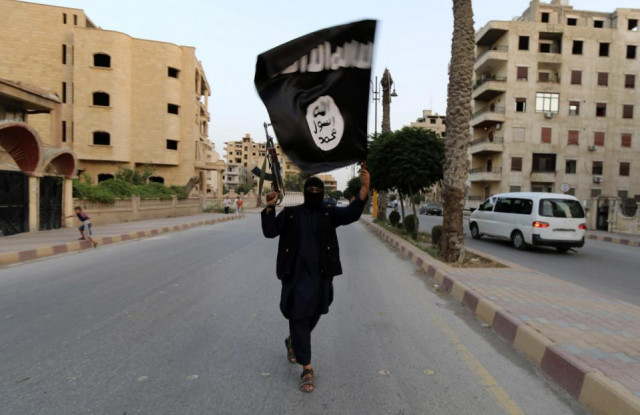A state of denial
The Safoora bus attack that killed more than 40 Ismailis was probably the handiwork of IS proxies or affiliates

PHOTO: AFP

It is now the turn of the Sindh police to have an awakening to the elephant problem. The Inspector General of Sindh Police briefed a parliamentary panel on October 12 saying that the IS had links with banned organisations, such as the Lashkar-e-Jhangvi (LeJ). The Safoora bus attack that killed more than 40 Ismailis was probably the handiwork of IS proxies or affiliates, and it is believed that the planner of that attack has escaped to Syria.
Those suspects now in custody have confessed to having played a part in 37 attacks. A picture is now emerging of the IS as an entity that has a presence across the country, has sympathisers widely spread and prepared to declare their support, and a military capacity that speaks of an active intelligence network to identify targets and competent foot soldiers to deliver death and destruction. This did not happen by osmosis. It happened because it was allowed to happen in a climate of willful neglect and denial. That, in turn, fed into a populace that had been radicalised over the years, meaning that the IS found itself pushing an open door when it came calling. Elephants are not always benign, and the IS elephant has a murderous gleam in its eye.
Published in The Express Tribune, October 14th, 2015.
Like Opinion & Editorial on Facebook, follow @ETOpEd on Twitter to receive all updates on all our daily pieces.














COMMENTS
Comments are moderated and generally will be posted if they are on-topic and not abusive.
For more information, please see our Comments FAQ